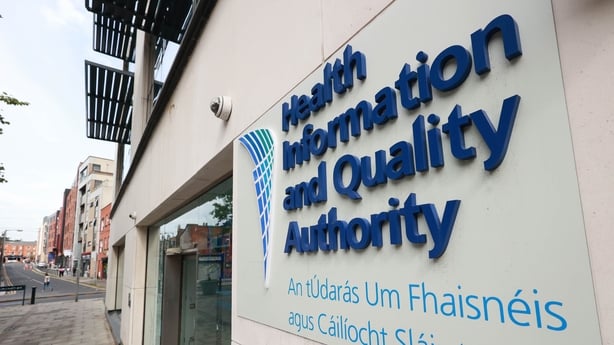A new unannounced inspection of the Emergency Department at University Hospital Limerick has found that the risks of harm to patients are not being fully managed.
It also found that the Emergency Medicine Early Warning System (EMEWS) had not been implemented at the time of the inspection.
It said this was a vital system for the recognition and response to patients who are deteriorating.
The inspection was conducted on 21 November last by the health watchdog the Health Information and Quality Authority (HIQA).
While the report notes improvements since the previous two inspections, the hospital had significant improvements to make against many national HSE targets.
HIQA said the continuous state of escalation in the Emergency Department is unsustainable.

On the day of inspection, it remained very overcrowded with 35 patients waiting in the Emergency Department for admission to a bed, and 19 on trolleys in corridors.
HIQA said this affected meaningful promotion of dignity and privacy and was not consistent with a human rights approach to care.
HIQA inspectors also found that staff were actively engaging with patients in a kind and respectful manner.
Patients told inspectors that staff were "amazing", "great", "so nice" but commented on the long waits.
The waiting area had been recently refurbished and electric monitors told patients of their expected wait time.
The UHL Emergency Department had capacity for 49 patients, divided into three zones.
The report noted that a consultant was on call each night and at weekends.
Overall, the Emergency Department was found to be functioning better than the previous inspection in March 2022, but HIQA said that increased capacity is needed.
HIQA said the completion of the new 96 bed block was expected in the first quarter of next year. Health officials said 71 of these beds will be net new beds.
Another 96-bed block is not expected to open until 2027, HIQA said.
The HSE said the inspection report confirms a slow but steady improvement in overall compliance and this is largely due to increases in staffing levels; new care pathways; and strengthened governance.
It also said that the EMEWS was introduced at UHL in January.
A statement from the UL Hospitals Group welcomed the publication of the HIQA report, saying that it "confirms a slow but steady improvement in overall compliance".
The group said this improvement is attributable to increases in staffing levels; the introduction of new care pathways; and strengthened governance arrangements".
However, the group acknowledged that one area of non-compliance related to patient safety and dignity "in the context of the severe and persistent overcrowding in our ED".
It added: "Overcrowding continues to represent a patient safety risk and we are committed to working with the Authority and with all other stakeholders in addressing this through a combination of additional resources and further reforms."
Last month, an inquest into the death of 16-year-old Aoife Johnston at UHL found there were systemic failures, missed opportunities and communication breakdowns throughout her time in the ED.
Ms Johnson, from Shannon, Co Clare, died from meningitis on 19 December 2022.
She had presented at the ED two days earlier with suspected sepsis, but faced a lengthy wait for treatment.
The inquest, held at Kilmallock Courthouse, returned a verdict of medical misadventure.






